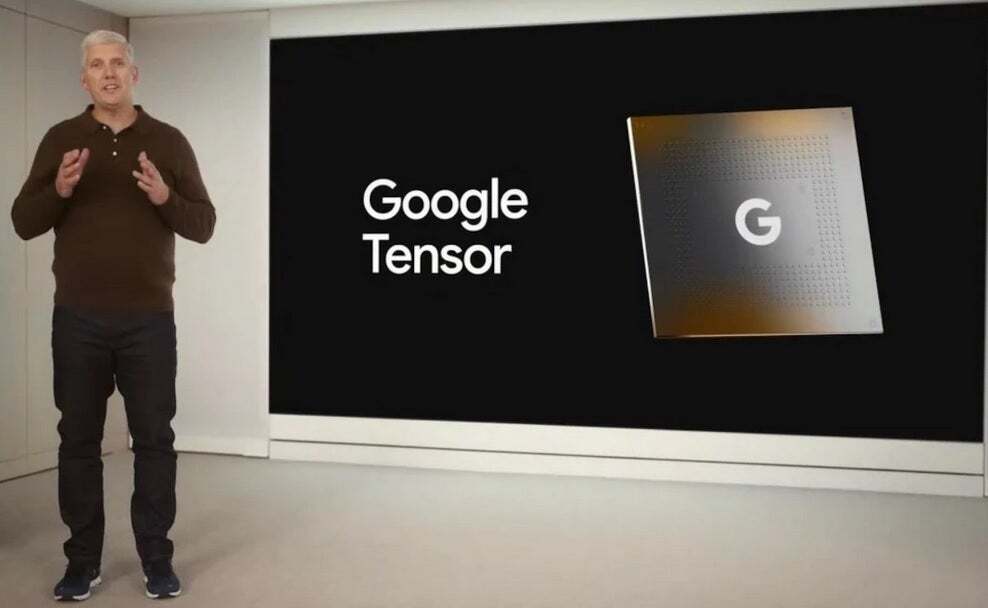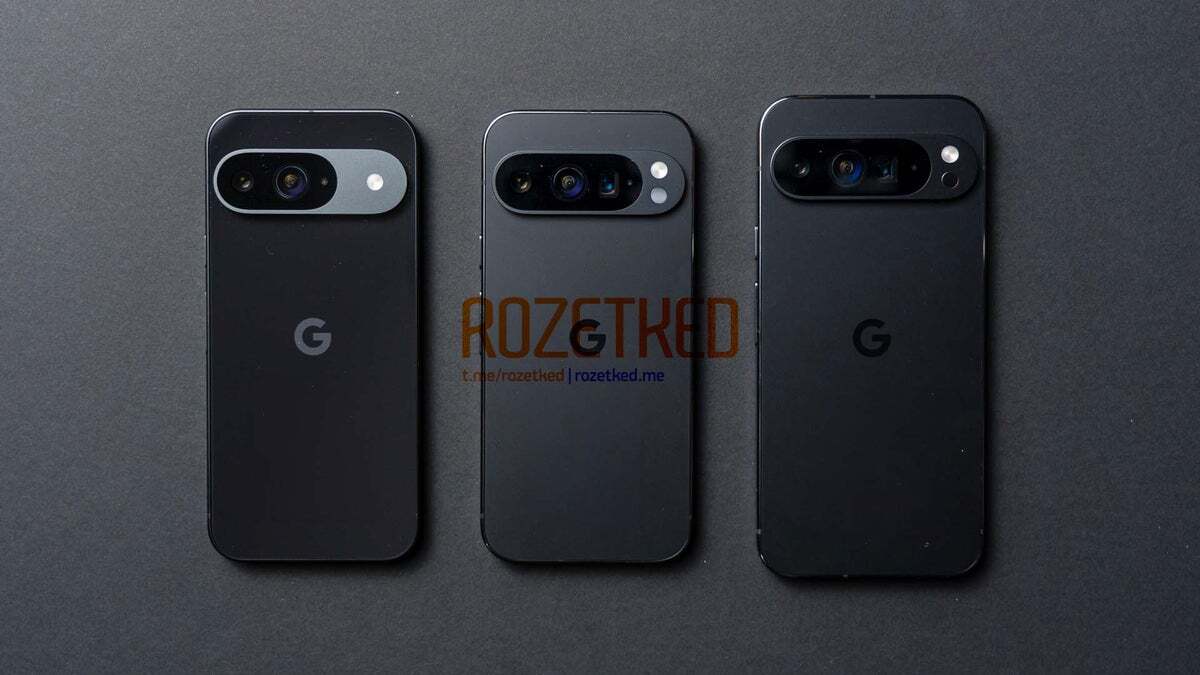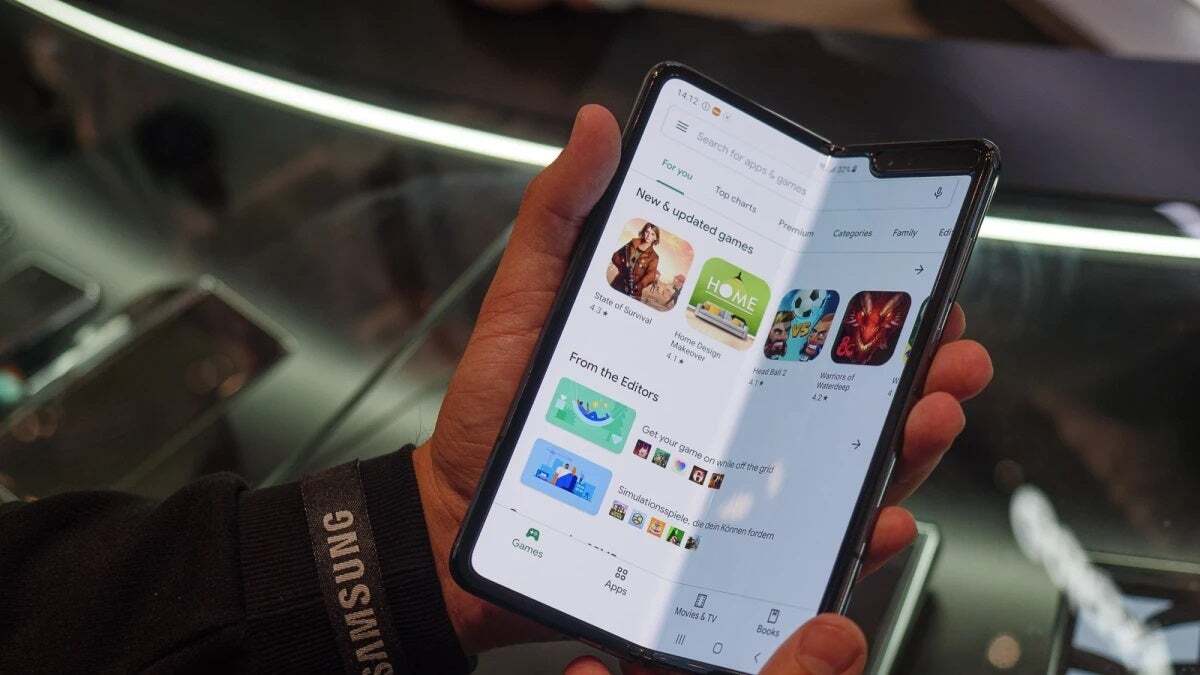Let’s see why the Pixel 10 could arrive with a potential inherent vice and why the Pixel 9 could prove to be the safer bet out of the two.
The Tensor fiesta

The first Google Tensor chip is introduced by Rick Osterloh at a Google presentation
The Pixel 9 family will get a chipset that’s a collaboration between Google and Samsung: the Tensor G4.The Pixel 10 line is expected to get a Google-exclusive chipset: the Tensor G5.
Some elaboration is needed: the upcoming Tensor G5 chipset is claimed to be fully customized by Google itself, and the news is circulating for months now.
The Tensor chipset’s other iterations (G1, G2, G3, G4), found on the Pixel 6 through Pixel 9, are simply modified Samsung Exynos chips manufactured by Samsung Foundry.
Reportedly, the Tensor G5 (again, set for 2025 and the Pixel 10 line) is to be made not by the Samsung Foundry, but by TSMC (Taiwan Semiconductor Manufacturing Company) using its second-generation 3nm process node.
- The 3nm process node mentioned above means that the chips should be more advanced. In mobile phone chips, “nm” (nanometer) measures the size of parts like transistors. One nanometer is one billionth of a meter, showing how tiny these parts are. Smaller nm technology means more transistors can fit into the chip, making it more efficient and powerful. Hence, a 3nm chip is expected to be “better” than 4nm chips.
Is new guaranteed to be “good”?


The leaked images of the upcoming Google Pixel 9 series were provided to the site Rozetked by an anonymous source
I’m starting this right off the bat with the maxim that new things aren’t necessarily good. Certainly not when they’re first-gen.
Don’t get me wrong: I’m awaiting new things as any other tech aficionado out there. It’s just that I don’t expect things to go smoothly right away.
With that said, I’m convinced that the Tensor G5 will be a pretty decent chipset – claiming that it’s going to be some technological wonder is just as pretentious as saying that it will suck. Come on, it’s 2024, we haven’t got a clue what 2025 will bring!
On a side note: if you’re part of the engineering team over at Google or TSMC and you’re actually working on the Tensor G5, please, do share everything there’s to know about the Tensor G5 right now. The risk is worth it, don’t you think?
Back to the “New isn’t always good” maxim, though.
Let’s take the Galaxy Z Fold from 2019, for example. We’re eagerly waiting for the Galaxy Z Fold 6 to drop in a few weeks time, but now’s the time to recall the original Galaxy Fold.


The original Samsung Galaxy Fold that started it all
This pioneer came with several built-in flaws compared to its successors. Here’s a list to refresh your memory:
- Screen durability issues: The original Galaxy Fold had a fragile plastic screen that was prone to scratches and damage. It also had a protective layer that some users mistakenly peeled off, thinking it was a regular screen protector, which led to screen malfunctions.
- Hinge mechanism problems: The hinge of the first Galaxy Fold was susceptible to debris and dust entering, which could cause the screen to bulge or the hinge to malfunction. This was less of an issue in later models, which featured improved sealing and engineering.
- Crease visibility: The foldable screen of the first-generation model had a very noticeable crease where it folded. While later models still had a crease, its visibility and the impact on usability were significantly reduced.
- Software optimization: Early software was not fully optimized for the foldable screen, leading to issues with app compatibility and the user experience when switching between the folded and unfolded states.
You can see where I’m going with this, don’t you?
While Google has undoubtedly gathered a ton of data (that’s its favorite pastime: collecting data) in the last years with the Tensor chipsets, the future is not guaranteed to be worry-free.Remember, the Tensor G1 chipset didn’t come without its fair share of issues and built-in flaws that were later addressed in further Tensor versions. It struggled with heat dissipation, leading to thermal throttling and performance degradation over extended usage, and some apps and features weren’t fully optimized or compatible with the Tensor G1, resulting in occasional glitches or performance hiccups.
That’s the pioneer’s job, though: to make and pave the way for its successors. The optimization and refinement stages (think better performance and overall enhancement in efficiency, compatibility, heat management, and software integration) are the next step.
That’s why, in my humble opinion, the Pixel 9 could prove to be a better option for many users.
Yes, the Pixel 10 is expected to be better, stronger, and faster than its predecessor (which is to arrive later in 2024). Having a chipset that’s brand-new in terms of design and customization, however, can come with its own limitations, complications, and drawbacks like the ones mentioned above.
Those who wait could benefit
(and save money)
What’s my advice? To skip the Pixel 10? Nope, not at all.
There’s a tiny fraction of phone users who simply go out and buy the latest thing. They’re beyond advice. They’ll get the Pixel 10 no matter what.
Also, in 2025 there’ll be many Android users whose phones will become obsolete and they (their owners) will look for replacement options. With the Pixel 10 line being the latest piece of tech, it’s going to be a natural choice for many.
I’m deliberately excluding iPhone users, as I don’t see any way for them to leave the Cupertino ecosystem and to switch teams.
So, the Pixel 10 will be selling well.
The Pixel 9, however, could prove to be a more reliable and more practical choice, albeit less powerful and capable than its successor.
One thing is sure – the Pixel 9 is going to be cheaper than the Pixel 10.
As a rule of thumb, it’s always a good idea to not buy on the first day. Best phones come to those who (can) wait.
👇Follow more 👇
👉 bdphone.com
👉 ultraactivation.com
👉 trainingreferral.com
👉 shaplafood.com
👉 bangladeshi.help
👉 www.forexdhaka.com
👉 uncommunication.com
👉 ultra-sim.com
👉 forexdhaka.com
👉 ultrafxfund.com